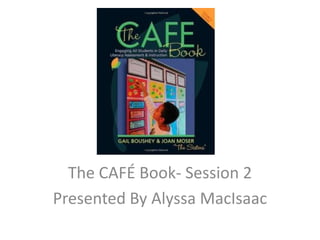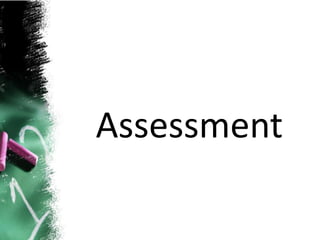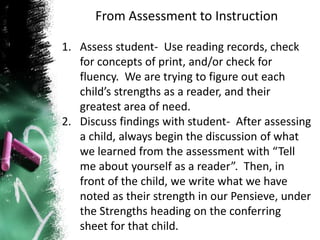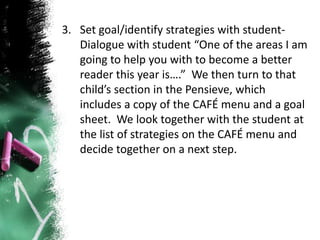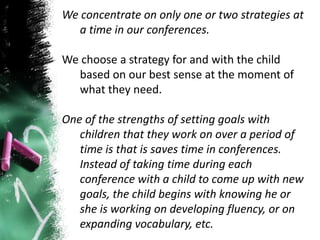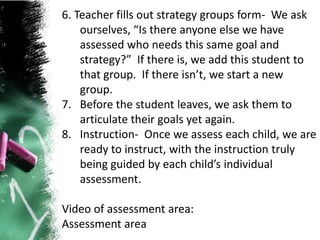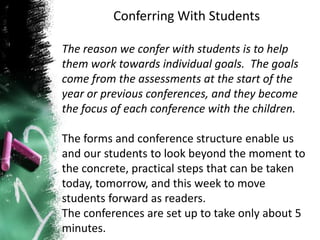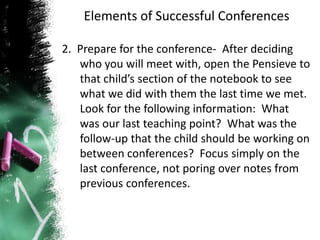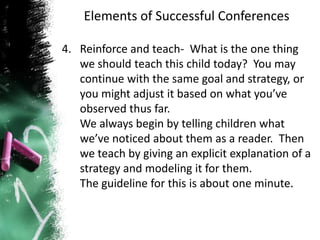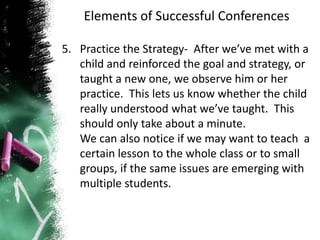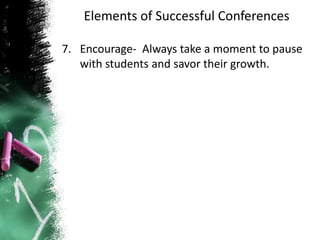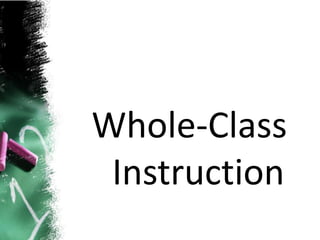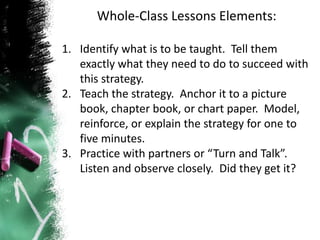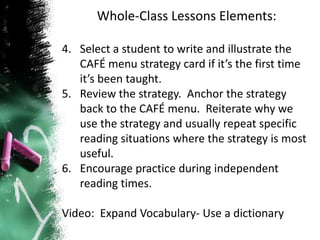The document provides an overview of assessment, instruction, conferring, and strategy groups in the CAFE book model. It discusses:
1. Assessing students to identify strengths and needs, setting goals, and choosing strategies.
2. Conferring with students one-on-one to help them work towards goals, focusing on reinforcing strategies and observing practice.
3. Delivering whole-class lessons to teach strategies, have students practice with partners, and encourage independent practice.
4. Forming flexible strategy groups for focused instruction on specific needs, tracking them in the calendar.
